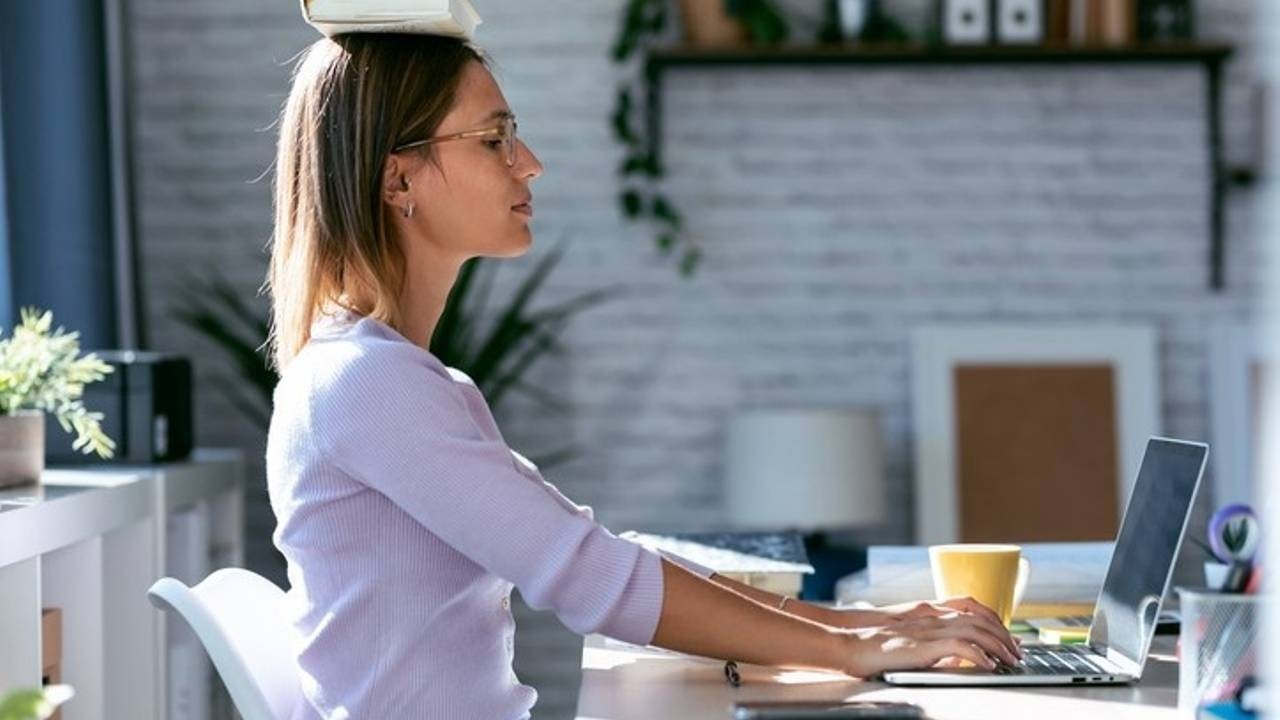Does Pilates Produce Perfect Posture?
Jan 24, 2021
Photo by nensuria
During my early teens, before discovering Pilates, poor posture was a huge issue for me. Due to a sudden growth spurt, a few months before my 12th birthday I was already 170 cm or 5 feet 7 inches tall when I started high school. Towering over my friends & classmates, I was incredibly self-conscious & felt like a giant. I took the one and only option available to me. Shrinking & looking smaller. How could I possibly do this you ask? By leaning my upper body backward and sinking down through my chest and then slumping and leaning at every available opportunity. Basically, in a ridiculous attempt to disappear into the crowd, I had created a postural nightmare for myself. Looking back on photos during those years, it's very clear, I hadn't grown into my body yet. Fortunately, it was reasonably short-lived and starting dance classes at 14 was a big plus for my posture and my confidence. Suddenly, I wasn't the tallest girl in my class as many of my classmates had caught up to me and some even towered over me. It wasn't until I discovered Pilates many laters, that I reached my full postural potential, but I had averted an unfolding disaster when I started dancing and proudly stood up to my full height for the first time in my life.
Are You Concerned About Your Posture?
If you can relate in some way to my struggle with my own posture, you are not alone. Without a doubt, the most common concern I've heard from new clients over the years is poor posture. During the initial conversation about what brings them to Pilates, regardless of their aims for Pilates, the majority will end in despair with "and I think my posture is terrible!" Most of us have been hounded as children to "sit up straight, draw your shoulders back, chest forward, don't slouch!" Sound familiar? Being able to balance a book on your head while you walked was considered a badge of honour. I don't know about you, but I never knew why any of this was important. Unfortunately, many of these commands, while well-intentioned weren't always appropriate for each individual and often caused another set of postural problems. So why is good posture so important for our health & well-being?
Perfect Posture - Myth or Reality?
There really is no such thing as perfect posture and perfection is not something we should be aspiring to when it comes to our posture. Instead, it's far more productive to aim for reaching your own postural potential than trying to conform to the myth of perfection. There are 4 natural curves of the spine which act as shock absorbers and help to reduce injury. If these curves are too flattened or too exaggerated, it means you don't have as much support and are more prone to injury. When the natural spinal curves are as close to being as balanced as possible, your muscles, joints and internal organs can work efficiently, which also prevents injury and disease. An example of this is if you are collapsed through your chest with your shoulders rounded forward, you are more prone to a shoulder injury, as the shoulder joint can't work efficiently in this position. The muscles at the front will be tight and weak and the muscles at the back will be on stretch and weak. Good posture ensures everything functions as it's designed to, evenly and efficiently. This position can also cause tight ribs which compresses the diaphragm and constricts breathing. This is just one example of many possible results of poor posture. So your parents definitely had your best interests at heart with the posture correction but it's important to ensure the changes you make are ideal for your individual needs.
How can you improve your posture with Pilates?
You can begin to subtly change your posture when you start Pilates. As you strengthen your abdominals & glutes, it will be much easier to hold your new posture. It usually takes a few weeks of practicing the new posture 2 or 3 times each day, for a couple of minutes, to establish and strengthen a new pathway in your brain and weaken the old pathway for the previous posture. Most people find some extra length in their spine when they reach their postural potential so are actually slightly taller. If you are consistent, your posture should start to become almost automatic after 3 or 4 weeks and then eventually it will become second nature. By focusing on your new posture, you are also fine-tuning your body awareness and you will be much more likely to know when you need to make postural adjustments. Correct seated posture and desk set-up at your computer are also vital to prevent pain and injury. If you spend the majority of your work life at a desk, Pilates will give you the awareness to help you maintain your posture and avoid slipping into bad habits. It's never too late to work on improving your posture and even very small changes can produce amazing results. Reaching your own postural potential provides so many health benefits, improves your confidence and contributes to your overall health and well-being.

